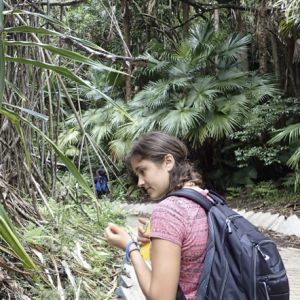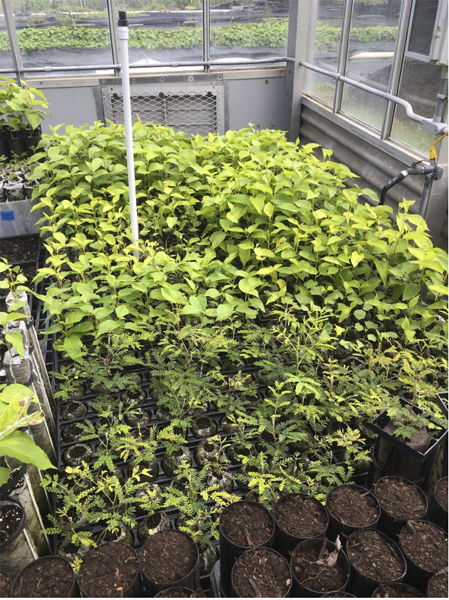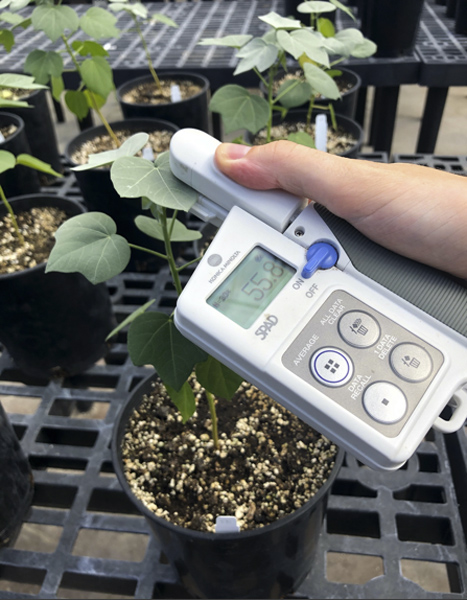2020 SURF projects
An Exploration of Plant-Fire-Climate Interactions

Faculty mentor: Curt Daehler, UH Mānoa
Many invasive plant species are fire prone and greatly impact local fire regimes, stressing native ecosystems in the process. Ronja helped develop a statistically-based screening process of plant characteristics from the literature to identify invasive plants that may promote fires and change local fire regimes. She also described a new island record of a naturalized weed on Oʻahu, described as “high risk” by her screening survey method.
Evaluating and Developing Techniques for Improving Success of Reforestation Efforts in Hawaiʻi

Faculty mentor: Camilo Mora, Geography and Environment, UH Mānoa
With increasing efforts to use reforestation as a method to combat climate change, it is important to maximize the likelihood that the planted trees will survive and capture carbon for the long term. Nick targeted three angles of this issue, investigating methods to enhance seed germination of native trees, developing remote watering systems for the field, and preparing to test effectiveness of weed control in test plots.
Vulnerability of coastal ecosystems to increased salinity from climate change

Faculty mentor: Kasey Barton, Life Sciences, UH Mānoa
While coastal plants are often considered well-adapted to salty conditions, the plants rely on freshwater so are vulnerable as coastal conditions shift with climate change to more saline conditions, from both saltwater inundation and contamination of groundwater sources. Taylor conducted greenhouse experiments and a global literature meta-analysis to evaluate the effects of increased seawater exposure on plant growth.
PROGRAM DETAILS
These three projects were conducted during the 10 weeks of the PI-CASC Summer Undergraduate Research Fellowship program in 2020. The SURFers worked with their mentors, in person and remotely, to carry out these impressive climate adaptation science projects despite the conditions imposed by COVID. They also participated in professional development workshops and presented their results at a symposium at the end of the summer.

